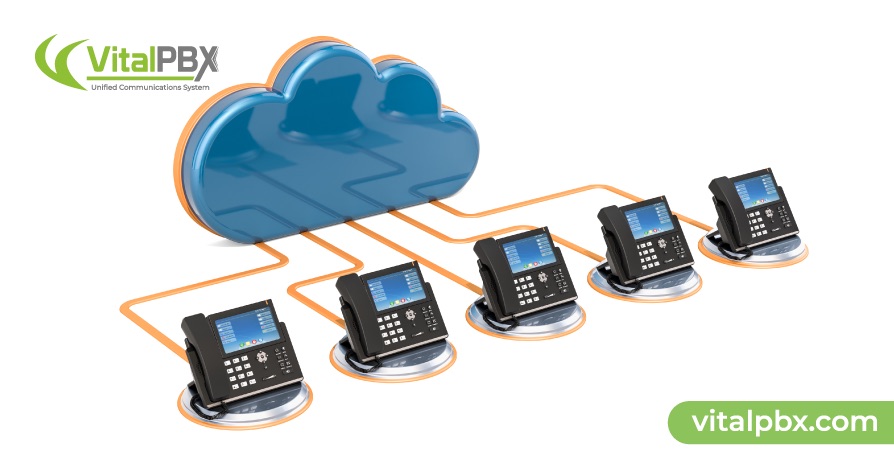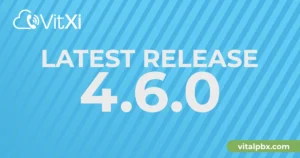The Ultimate Guide to Call Center Cloud Phone Systems in 2025
The traditional image of a call center—a vast room filled with cubicles and a cacophony of ringing phones—is rapidly becoming a relic of the past. Today’s customer service hubs are dynamic, agile, and often globally distributed. The driving force behind this revolution is the call center cloud phone system, a technology that is not just changing where we work, but fundamentally transforming how businesses connect with their customers.
If you’re looking to enhance customer satisfaction, empower your agents, and future-proof your operations, migrating to the cloud is no longer an option; it’s a strategic necessity. This comprehensive guide will explore everything you need to know about cloud-based call center solutions in 2025, from their core benefits and essential features to how you can choose the perfect system for your business needs.
What Exactly is a Cloud Call Center Phone System?
Before diving into the benefits, let’s clarify what we mean by a “cloud” system. It’s a term we hear often, but its application in the contact center world is specific and powerful. It represents a fundamental shift away from legacy hardware toward a more flexible, internet-based infrastructure.
Demystifying the “Cloud” in Contact Centers
A cloud call center phone system, also known as a Contact Center as a Service (CCaaS), is a solution where all the telephony infrastructure, software, and data are hosted on the provider’s secure servers. Your team accesses the entire system through the internet using a web browser or a dedicated application, eliminating the need for bulky on-premise hardware like a traditional PBX.
Think of it like the difference between buying a DVD and streaming a movie on Netflix. The old on-premise model required you to own and maintain the physical hardware (the DVD player and discs). The cloud model gives you access to a vast library of features and functionality on-demand, with all the maintenance and updates handled by the provider.
How a Virtual Call Center Phone System Works
At its core, a cloud phone system operates on Voice over Internet Protocol (VoIP) technology, which converts voice calls into digital signals and sends them over the internet. This simple yet powerful mechanism unlocks a world of possibilities for your business.
Agents can make and receive calls from anywhere using a variety of devices:
- Softphones: Software applications on their computers that mimic a physical desk phone.
- WebRTC (Web Real-Time Communication): Technology that allows calling directly from a web browser without any plugins.
- Mobile Apps: Turning any smartphone into a fully-featured business extension.
This setup not only provides incredible flexibility but also centralizes your entire communications stack. Managers can oversee operations, pull real-time analytics, and manage agents from a single, unified dashboard, regardless of where their team is located. To learn more about the fundamentals, you can explore the basics of what a PBX is on the VitalPBX blog.
The Unbeatable Benefits of Migrating Your Call Center to the Cloud
The reasons for switching to a cloud-based contact center go far beyond simply modernizing your tech stack. The move delivers tangible business advantages that impact everything from your bottom line to employee morale and customer loyalty.
Unlocking Supreme Scalability and Flexibility
One of the most significant limitations of on-premise systems is their rigidity. Scaling up required purchasing and installing new hardware, a slow and expensive process. Cloud systems shatter this barrier. You can add or remove agent licenses with just a few clicks, allowing your call center to adapt instantly to business demands. This is invaluable for handling seasonal peaks, such as a retail business quadrupling its support staff for the holiday season without any new hardware investment.
Significant Cost Reductions and Predictable Pricing
Traditional phone systems come with a hefty price tag: massive upfront capital expenditure (CapEx) for hardware, ongoing maintenance contracts, and dedicated IT staff to manage it all. Cloud contact center solutions flip this model on its head.
- Eliminate High Upfront Costs: You replace a large initial investment with a predictable monthly or annual subscription fee (OpEx).
- Reduce IT Overhead: Your provider handles all the maintenance, security patches, and system updates.
- Lower Call Costs: VoIP calling rates, especially for international calls, are often significantly cheaper than traditional telephony.
Enabling a Global, Remote Workforce
The post-pandemic world has proven the power of remote work. A cloud phone system is the enabling technology for a work-from-anywhere call center. By untethering your agents from a physical office, you can hire the best talent from anywhere in the world, improve employee work-life balance, and ensure business continuity during unforeseen disruptions.
Gaining Access to Advanced Features and Integrations
Cloud providers compete by offering the latest and greatest in communication technology. This means your business gains immediate access to enterprise-grade features that were once prohibitively expensive. As noted by industry analysts at Gartner, the CCaaS market is booming precisely because it provides a gateway to innovation, from AI-powered analytics and sentiment analysis to seamless omnichannel integrations that unify customer interactions across every channel.
Essential Features Your Cloud Contact Center Solution Must Have in 2025
Not all cloud phone systems are created equal. As you evaluate potential solutions, there are several key features that are non-negotiable for a modern, high-performing call center.
- Intelligent Call Routing (ACD): Automatic Call Distribution is the brain of your call center. It should be able to route incoming calls to the most appropriate agent based on skills, availability, language, or other custom business rules, minimizing customer wait times.
- Interactive Voice Response (IVR): A well-designed IVR system empowers customers to self-serve for simple queries (e.g., checking an account balance) or quickly directs them to the correct department, freeing up your agents to handle more complex issues.
- Advanced Analytics and Reporting: “What gets measured gets managed.” Your system must provide a real-time dashboard and in-depth historical reports on key metrics like call volume, average handle time, first-call resolution, and agent performance.
- CRM Integration: The ability to integrate with your Customer Relationship Management (CRM) software is critical. This provides agents with a complete view of the customer’s history on their screen the moment a call comes in, leading to a more personalized and efficient service.
- Omnichannel Support: Customers expect to connect with you on their preferred channel, be it voice, email, web chat, SMS, or social media. A true omnichannel solution brings all these conversations into a single, unified agent interface, creating a seamless customer journey.
- Quality Management and Call Recording: Call recording is essential for training, compliance (e.g., PCI DSS), and resolving disputes. Advanced systems also offer tools for screen recording and agent scoring to ensure consistent service quality. Check out our deep dive into the benefits of call recording for your business.
Choosing the Right Cloud-Based Call Center Software
With a clear understanding of the benefits and features, the final step is selecting the right partner. This decision should be based on a careful evaluation of your unique business requirements and the provider’s capabilities.
Assessing Your Business Needs
Start by looking inward. Before you review a single vendor, ask yourself these critical questions:
- How many agents do we have now, and how much do we expect to grow in the next year?
- What is our typical daily call volume? Does it fluctuate seasonally?
- What other software (like our CRM) is essential for us to integrate with?
- What is our budget, and do we prefer a per-user or usage-based pricing model?
- What are our biggest customer service pain points right now?
Evaluating Vendor Reliability and Support
A phone system is a mission-critical tool. Look for a provider with a proven track record of reliability, typically demonstrated by a Service Level Agreement (SLA) that guarantees a high percentage of uptime (e.g., 99.99%). Furthermore, investigate the quality of their technical support. When you need help, you need it fast. Check for 24/7 support options and read reviews from current customers.
The Importance of a User-Friendly Interface
The most powerful system in the world is useless if your team can’t figure out how to use it. The software should have an intuitive interface for both agents and administrators. A clean, uncluttered agent desktop reduces cognitive load and improves efficiency, while a straightforward admin portal makes it easy to manage call flows, users, and reporting. Always ask for a live demo or, even better, a free trial to test the user experience firsthand.
Frequently Asked Questions (FAQ) about Cloud Phone Systems
What is the difference between an on-premise and a cloud call center?
The primary difference is location and ownership. An on-premise system involves physical hardware that you own and maintain at your office. A cloud system is hosted and maintained by a third-party provider, and you access it over the internet via a subscription. This leads to differences in cost (CapEx vs. OpEx), scalability, and IT management.
How secure are cloud contact center solutions?
Reputable cloud providers invest heavily in security, often more than an individual business can afford. They employ measures like end-to-end encryption, redundant data centers, and regular security audits. They also adhere to major compliance standards like GDPR, HIPAA, and PCI DSS to protect sensitive customer data.
Can I keep my existing business phone numbers?
Yes. The process is called “number porting,” and it’s a standard procedure that allows you to move your existing phone numbers from your old carrier to your new cloud provider without any interruption in service.
Is a cloud phone system suitable for a small business call center?
Absolutely. In fact, cloud systems are often ideal for small businesses. They provide access to enterprise-level features without the enterprise-level price tag. The low startup costs and scalability mean an SMB can launch a professional, feature-rich call center that can grow with them.
Your Future-Proof Call Center Awaits
The shift to call center cloud phone systems is more than a technological upgrade; it’s a strategic business decision that fosters growth, enhances efficiency, and dramatically improves the customer experience. By embracing the cloud, you gain unparalleled scalability, reduce operational costs, and empower your team to deliver outstanding service from anywhere in the world. The future of customer communication is flexible, intelligent, and hosted in the cloud.
Ready to transform your customer service and empower your agents with a modern communication platform? Discover the power and flexibility of VitalPBX and see how easy it is to build the cloud call center of the future.




